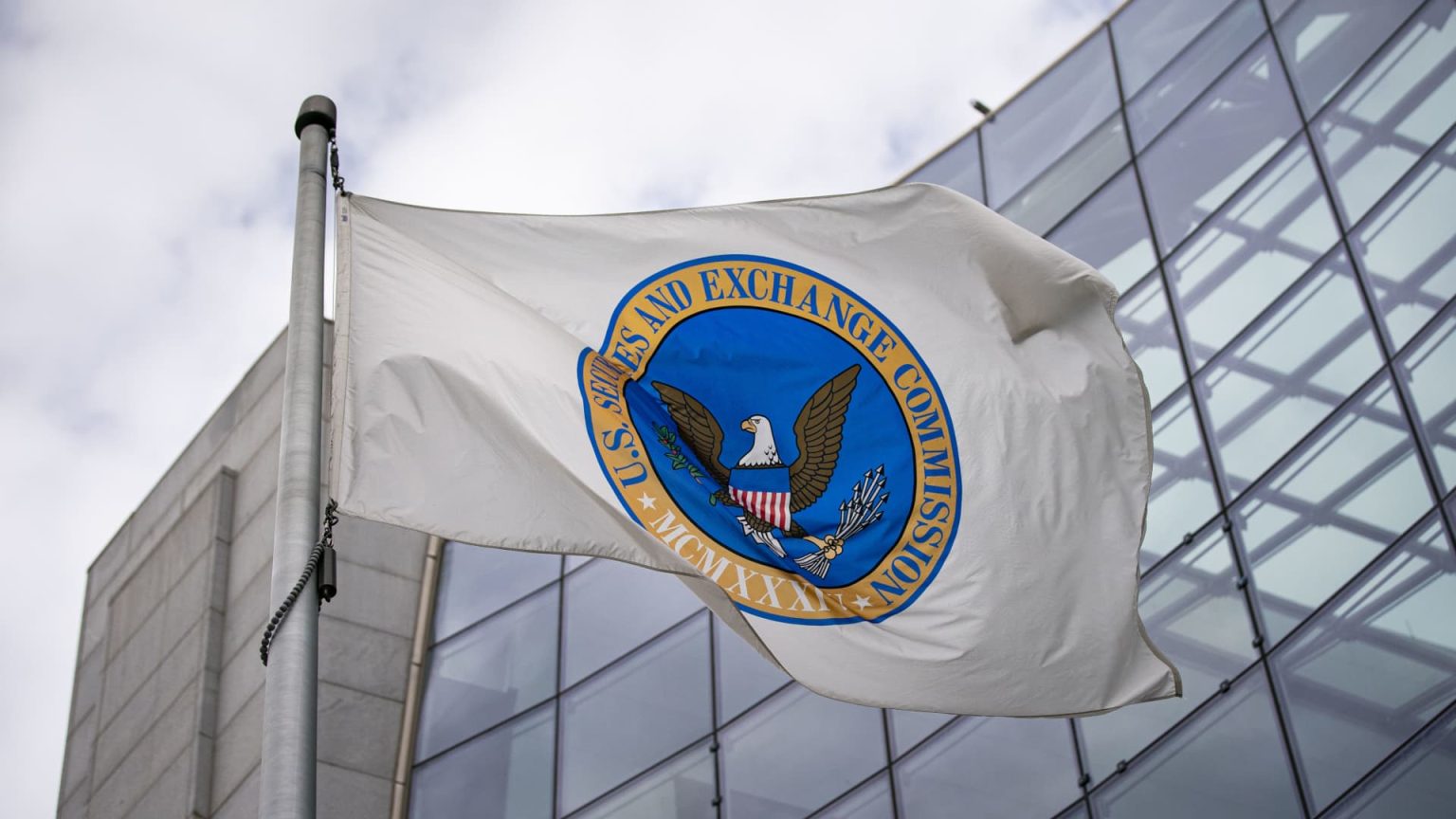The SEC has faced scrutiny for its handling of cryptocurrency-related matters
The U.S. government’s market regulator, the Securities and Exchange Commission (SEC), finds itself entangled in a web of crypto regulatory challenges and criticisms. The agency, tasked with overseeing and regulating the digital asset space, has faced scrutiny for its handling of cryptocurrency-related matters. While the SEC has taken action against certain crypto exchanges and entities, it has been criticized for its lack of clarity in defining and categorizing various tokens. This ambiguity has not only fostered a regulatory grey area but has also had a notable impact on cryptocurrency prices.
However, the challenges do not end there. The SEC’s struggle to hire experts proficient in the intricacies of the cryptocurrency market has raised concerns. The agency’s Inspector General, in an October report, highlighted the difficulties faced in recruiting crypto specialists. A significant obstacle is that many candidates are unwilling to comply with the agency’s ethics rules, which require them to divest their cryptocurrency investments. This reluctance to sell crypto assets at potentially depressed prices has left the SEC in a conundrum.
The recruitment of crypto experts is deemed “critical” for effectively addressing and investigating emerging issues in the cryptocurrency markets. As cryptocurrencies gain prominence and influence in the financial world, the SEC’s ability to regulate and oversee the sector becomes increasingly vital. To navigate this complex landscape, the agency must strike a balance between enforcing its regulatory authority and fostering a conducive environment for expertise to thrive.
Critics argue that the SEC’s lack of clear guidelines has contributed to market instability and price collapses. To address this, the agency might need to reconsider its approach, moving away from a solely punitive stance and embracing a more collaborative and educative role. This article delves into the challenges faced by the SEC in regulating cryptocurrencies, the criticisms it has encountered, and the potential need for a shift in strategy to navigate this dynamic landscape successfully.
The SEC’s Crypto Conundrum: Challenges and Criticisms
As the cryptocurrency market continues to expand and gain prominence on the global stage, regulatory bodies worldwide are grappling with the challenge of effectively overseeing this digital frontier. In the United States, the SEC is at the forefront of this regulatory effort. However, the agency’s journey into the world of cryptocurrencies has been marked by challenges and criticisms, which have left both regulators and industry stakeholders seeking solutions.
One of the primary issues the SEC faces is the evolving nature of cryptocurrencies. With thousands of digital assets in existence, each with its unique characteristics and use cases, categorizing and defining these tokens have proven to be a complex task. The lack of a comprehensive framework for classifying cryptocurrencies has led to regulatory uncertainty, leaving market participants in a state of ambiguity.
Critics argue that the SEC’s approach to regulating cryptocurrencies has been marked by a lack of clarity and consistency. Instead of proactively setting clear guidelines for the industry, the agency has often resorted to enforcement actions, pursuing legal actions against entities deemed to be in violation of securities laws. This reactive approach, critics claim, has created a regulatory grey area where market participants are left to guess whether their activities fall within the bounds of the law.
The Impact of Regulatory Uncertainty on Cryptocurrency Prices
The SEC’s ambiguity in defining and classifying cryptocurrencies has had a tangible impact on the market. Cryptocurrency prices are known for their volatility, and regulatory uncertainties have only added to this instability. When the SEC initiated enforcement actions or investigations into certain crypto projects, market participants often reacted by selling off assets, fearing potential legal repercussions.
This pattern of price drops following SEC announcements has been observed numerous times in the cryptocurrency market. The lack of clear guidelines has left many crypto projects and investors unsure about how to navigate the regulatory landscape. As a result, the SEC’s actions, rather than providing clarity, have sometimes led to panic selling and adverse market reactions.
In this context, it becomes evident that the SEC’s approach to cryptocurrency regulation has not only left market participants in the dark but has also contributed to market downturns. It is within this backdrop that the agency faces the challenge of recruiting experts who can help navigate the complex and ever-evolving world of cryptocurrencies.
The SEC’s Struggle to Attract Crypto Experts
The SEC’s Inspector General, in an October report, shed light on the agency’s struggle to hire experts with a deep understanding of cryptocurrencies. The report emphasized that the recruitment of specialists in the crypto field is “critical” for the agency to effectively address emerging issues and challenges in the market. However, several candidates have been unwilling to meet the agency’s ethics requirements.
One of the key stumbling blocks is the SEC’s ethics rules, which mandate that employees must divest their cryptocurrency investments. This requirement is in line with the agency’s commitment to preventing potential conflicts of interest and maintaining the integrity of its workforce. While these rules are designed to ensure transparency and impartiality, they have inadvertently deterred crypto enthusiasts and experts from joining the SEC.
The reluctance to sell crypto assets, particularly during periods of market volatility, has left many candidates in a difficult position. For individuals who believe in the long-term potential of cryptocurrencies, divesting their holdings at what they perceive as a suboptimal moment can be a significant hurdle. This has led to a situation where some of the most knowledgeable crypto experts are hesitant to take up roles at the SEC.
To Hire or Not to Hire: The SEC’s Dilemma
The SEC’s conundrum lies in its need for crypto expertise to effectively regulate the market while adhering to its ethics requirements. Striking a balance between these two imperatives is a challenge that the agency must address. To do so, the SEC may need to consider alternative approaches to attract the necessary talent.
One possible solution is to revise the agency’s ethics rules to accommodate candidates with a genuine interest in cryptocurrencies. By allowing employees to retain their crypto investments while ensuring they adhere to strict disclosure and conflict-of-interest protocols, the SEC could create a more attractive environment for crypto experts.
Additionally, the SEC could explore collaborative initiatives with industry experts and organizations to bridge the knowledge gap. Working closely with seasoned professionals and gaining insights from the cryptocurrency community can be instrumental in understanding the nuances of the market.
A Shift in Regulatory Strategy
Beyond the challenge of hiring experts, the SEC may also need to revisit its regulatory strategy. The agency has often been criticized for its punitive approach to regulation, focusing on enforcement actions rather than providing clear and comprehensive guidelines for market participants.
In an environment where innovation and technological advancements are driving the financial sector, the SEC’s role is not only to enforce the law but also to foster innovation and ensure investor protection. Striking a balance between these objectives requires a multifaceted approach to regulation.
The SEC can benefit from engaging with the cryptocurrency industry, seeking input from stakeholders, and actively participating in discussions about the regulatory framework. By promoting transparency and collaboration, the agency can enhance its understanding of the crypto space while providing much-needed guidance to market participants.
A Clearer Strategy for Regulatory Success
In conclusion, the SEC’s journey in the world of cryptocurrencies has been marked by challenges and criticisms. The lack of clarity in defining and categorizing tokens has created a regulatory grey area, leading to market uncertainties and price fluctuations. Additionally, the agency’s struggle to hire crypto experts due to ethics requirements has presented a recruitment dilemma.
To navigate this complex landscape effectively, the SEC may need to consider revising its ethics rules to attract crypto talent, collaborate with industry experts, and revise its regulatory strategy. A more proactive, collaborative, and educative approach can help the agency provide clarity and guidance to the crypto community, ultimately benefiting both regulators and market participants.















